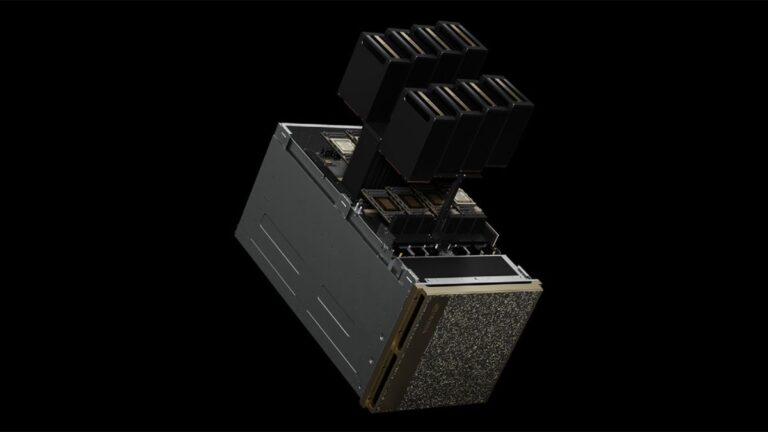Nvidia acknowledged on Wednesday that low yields on its upcoming Blackwell-based products had forced it to respin some layers of its B200 processors to improve yields. Nvidia plans to ramp up Blackwell production in the fourth quarter of 2024 and ship billions of dollars’ worth of Blackwell GPUs in the fourth quarter of this year.
“We have modified our Blackwell GPU mask to improve production yields,” Nvidia’s statement read. “The Blackwell production ramp is expected to begin in the fourth quarter and continue through fiscal 2026. We expect Blackwell sales to reach several billion dollars in the fourth quarter.”
Nvidia reaffirmed that it sampled Blackwell GPUs to customers in the second quarter, but acknowledged that it had to produce “lower-yielding Blackwell material” to meet demand for Blackwell processors, which affected its gross margins.
Nvidia CEO Jensen Huang said during the company’s earnings conference call that the company has implemented all necessary changes to the design of its Blackwell B100 and B200 GPUs and expects to begin mass production in the fourth quarter.
Previously, Nvidia’s B100 and B200 GPUs were reported to be the first processors to use TSMC’s CoWoS-L package, which uses RDL interposers to connect chiplets to local silicon interconnect (LSI) bridges, enabling transfer speeds of around 10TB/s. These bridges must be precisely aligned. However, mismatches in the coefficient of thermal expansion (CTE) between the GPU chiplets, LSI bridges, RDL interposers, and motherboard substrates caused warpage and system failures. Reports said that Nvidia had to redesign the top metal layer and bumps of the GPU silicon to improve yields. However, the company did not provide details of the fix, saying only that new masks had to be created.
Nvidia says that since no functional changes were needed for the Blackwell silicon, all of the changes were made to improve yields and ensure a stable supply of B100 and B200 GPUs.
It’s unclear how many Blackwell GPUs Nvidia will ship in Q4 2024. Given that Nvidia is rumored to be charging around $70,000 per module (prices for datacenter hardware vary based on volume and demand, so take this number with a pinch of salt), and that Nvidia expects to book “multiple billion dollars in Blackwell revenue” in Q4 2024 (i.e., more than $2 billion but less than $10 billion), it’s clear the company will ship a significant number of chips in the fourth quarter of this year. Naturally, the company won’t disclose actual shipment volumes.

